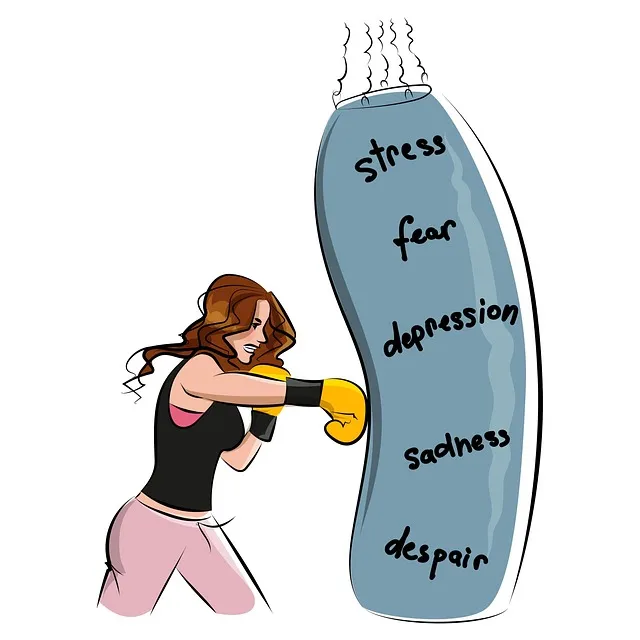Risk assessment is a core strategy for harm minimization at Kaiser Permanente's mental health appointments in Denver, fostering safe environments and empowering individuals with tailored coping strategies. Professionals identify risks, teach self-care, and provide personalized safety plans, enhancing well-being and resilience. Kaiser Permanente Denver's dedicated mental health appointment phone line facilitates access to these services, demonstrating their commitment to community mental health support. Effective harm minimization includes comprehensive risk assessment tools, burnout prevention programs for staff, and regular review of risk management plans, ensuring improved patient outcomes and a healthier work environment.
Risk assessment and harm minimization planning are essential components of ensuring safety and well-being in various settings. This article explores these critical processes, starting with understanding risk assessment as a foundational step in harm reduction. We delve into the professional guidance offered by mental health experts in creating comprehensive safety plans. Using Kaiser Permanente Denver as a case study, we highlight their resources for effective risk management. Key components of successful strategies are outlined, followed by practical implementation tips and continuous evaluation methods for optimal risk assessment. For mental health appointments, contact the Kaiser Permanente Denver phone number to access specialized support.
- Understanding Risk Assessment: A Fundamental Step in Harm Minimization
- The Role of Mental Health Professionals in Developing Safety Plans
- Kaiser Permanente Denver: A Resource for Comprehensive Risk Management
- Key Components of a Successful Harm Minimization Strategy
- Practical Implementation and Continuous Evaluation for Effective Risk Assessment
Understanding Risk Assessment: A Fundamental Step in Harm Minimization

Risk assessment is a crucial step in harm minimization planning, serving as the foundation for creating safe and supportive environments. It involves systematically identifying potential risks and evaluating their likelihood and impact. This process empowers professionals, such as those at Kaiser Permanente mental health appointments in Denver, to make informed decisions and implement tailored strategies. By understanding the unique challenges individuals face, whether it’s managing stress through Compassion Cultivation Practices or fostering Inner Strength Development, risk assessment enables the development of effective harm minimization plans.
This proactive approach ensures that resources are allocated efficiently, interventions are targeted appropriately, and support systems are in place to mitigate potential harms. It’s not just about avoiding dangers but also about promoting resilience and enhancing overall well-being. Through rigorous risk assessment, professionals can create a supportive network, incorporating Stress Management techniques as needed, to help individuals navigate life’s challenges with greater ease and confidence.
The Role of Mental Health Professionals in Developing Safety Plans

Mental health professionals play a pivotal role in developing safety plans tailored to individual needs, especially when navigating high-risk situations or crises. These professionals, often accessible through organizations like Kaiser Permanente mental health appointments in Denver, offer valuable expertise and support. They guide individuals in identifying potential risks and triggers, teaching coping skills development as part of their treatment approach. By fostering mental health awareness, these experts enable clients to create comprehensive safety plans, incorporating strategies for managing stress, anxiety, or other mental health challenges.
Through regular sessions, therapists assist in refining self-care routine development for better mental health, ensuring individuals have practical tools to maintain stability and resilience. This proactive approach empowers people to take charge of their well-being, promoting a sense of agency and enhancing their ability to navigate life’s challenges with greater ease and confidence.
Kaiser Permanente Denver: A Resource for Comprehensive Risk Management

Kaiser Permanente Denver stands as a beacon of comprehensive risk management and harm minimization strategies within the healthcare sector. As a leading healthcare provider in the region, they offer valuable resources for mental health support, exemplified by their dedicated appointment phone line, making it easy for individuals to access necessary care. This approach aligns with the core principles of resilience building, fostering a culture where mind over matter is embraced.
Through consistent efforts, Kaiser Permanente Denver integrates mindfulness and cultural competency training into their practices. These initiatives ensure healthcare providers are equipped to address diverse patient needs, especially in managing risks associated with mental health conditions. By prioritizing these aspects, they contribute significantly to the overall well-being of the community they serve.
Key Components of a Successful Harm Minimization Strategy

A successful harm minimization strategy within healthcare, particularly focusing on mental health services like those offered by Kaiser Permanente in Denver, hinges on several key components. Firstly, comprehensive risk assessment is imperative. This involves a thorough evaluation of patient history, current risks, and potential triggers to identify early warning signs of distress or harmful behaviors. By implementing robust risk assessment tools, mental health professionals can proactively manage client safety during and between appointments, such as those facilitated by the Kaiser Permanente mental health appointment phone number Denver.
Additionally, integrating burnout prevention strategies for healthcare providers is vital to sustaining a healthy work-life balance and maintaining high-quality care. Mental wellness coaching programs development should be encouraged, offering support and guidance to professionals managing demanding caseloads. This proactive approach ensures that caregivers are equipped with the tools necessary to recognize their own mental health challenges and implement effective coping mechanisms.
Practical Implementation and Continuous Evaluation for Effective Risk Assessment

Effective risk assessment and harm minimization planning require a practical implementation approach tailored to mental health professionals’ unique context. At Kaiser Permanente, for instance, the Denver mental health appointment phone number serves as a vital gateway for patients seeking support. This integration of telephonic access underscores the importance of seamless risk assessment processes. Professionals should adopt structured frameworks that accommodate ongoing evaluation and dynamic adjustment, reflecting the evolving nature of patient needs and mental health landscapes.
By integrating self-care routine development into their practices, mental health professionals can mitigate risks associated with burnout, a prevalent concern within healthcare sectors. Regularly reviewing and updating risk management planning is crucial, aligning with strategies for burnout prevention. This continuous evaluation ensures that interventions remain relevant and effective, fostering a healthier professional environment and enhancing patient care outcomes.
Risk assessment and harm minimization planning are vital components in ensuring the well-being of individuals, especially those with mental health concerns. By understanding risk factors and implementing comprehensive strategies, such as those demonstrated by Kaiser Permanente Denver, professionals can create safer environments. Mental health professionals play a crucial role in developing personalized safety plans, offering guidance, and providing resources like the Kaiser Permanente mental health appointment phone number in Denver. This multi-faceted approach ensures continuous evaluation and improvement in risk management, fostering a more secure and supportive community for all.






